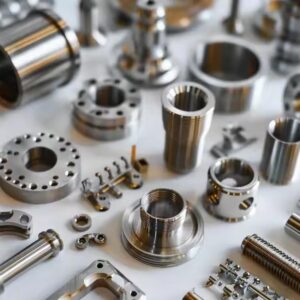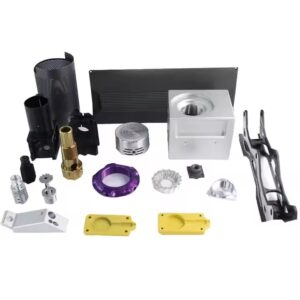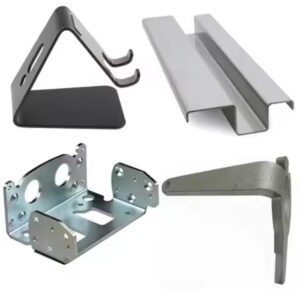Hey there! If you’re pondering why custom metal manufacturing is the go-to over standard parts, you’re in the right place. I’m here to break it down, from what custom manufacturing really means to when it’s absolutely crucial to choose custom solutions. Let’s dive into the world of custom metal component manufacturing, from the perspective of someone who lives and breathes this stuff every day.
What is Custom Manufacturing?
Custom manufacturing, in the simplest terms, is like ordering a tailor-made suit instead of picking one off the rack. It involves creating parts and components specifically designed to meet the unique requirements of your project or machinery. Unlike standard off-the-shelf parts, custom parts are engineered to fit seamlessly into your operations, providing the exact functionality you need.
Types of Custom Manufacturing
Custom manufacturing can vary widely depending on what you need. Here are a few types you might encounter:
- Precision Machining: Creating parts with extremely tight tolerances that standard machines just can’t handle.
- Fabrication: Cutting, bending, and assembling metal to create complex structures.
- Casting and Molding: Perfect for producing complex shapes in large quantities.
- Forging: Ideal for parts requiring exceptional strength.
- 3D Printing: Great for intricate, lightweight parts and rapid prototyping.
Each type has its own set of benefits and is chosen based on the specific demands of the project.
Why Go for Custom Manufacturing?
Custom manufacturing isn’t just for show. It offers tangible benefits like:
- Perfect Fit and Integration: Like that tailor-made suit, custom parts are made to fit perfectly. This means less time tweaking parts to fit and more time running your operations smoothly.
- Enhanced Performance: Custom parts are designed to handle the specific stresses and demands of your operations, which can lead to better overall performance.
- Material Optimization: Choose materials that best suit your needs, whether you need corrosion resistance, heat tolerance, or something else.
- Innovation and Flexibility: Custom solutions often lead to innovative ways of solving problems, pushing your projects beyond traditional limits.
When Do You Need Custom Manufacturing?
Custom manufacturing comes into play in several scenarios:
- Unique Requirements: When off-the-shelf parts just can’t meet the specific needs of your project.
- High Performance: When your equipment needs to perform at peak efficiency under high stress or in extreme conditions.
- Replacement of Obsolete Parts: When replacement parts for older equipment are no longer available.
- Cutting-Edge Projects: When you’re working on something so new or unique that standard parts simply don’t exist.
Conclusion
Alright, let’s wrap this up. Choosing between custom and standard parts isn’t just about costs; it’s about thinking long-term. Investing in custom parts might seem like a bigger upfront cost, but when you factor in the increased efficiency, reduced downtime, and better integration, it’s clear that custom is the way forward. It’s about making sure every component works just right, ensuring your operations run smoother and more efficiently.
At our factory, we don’t just make parts—we solve problems. We’re here to figure out exactly what you need and make it a reality. So, if you’re tired of the one-size-fits-all approach and ready for something that fits just right, give us a call. Let’s make something awesome together.




